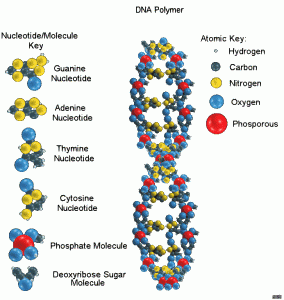Comments on “A framework for consciousness”
The Missing Self, or: 10 Ways How To Be A Zombie The article by Crick and Koch is undoubtedly a first: for Nature to cave in so spectacularly to the so-called ‘Framework’ proffered to them in the name of neuroscience. But unfortunately the Framework gets nowhere fast, since it has no real teeth to get […]

The Missing Self, or: 10 Ways How To Be A Zombie
The article by Crick and Koch is undoubtedly a first: for Nature to cave in so spectacularly to the so-called ‘Framework’ proffered to them in the name of neuroscience. But unfortunately the Framework gets nowhere fast, since it has no real teeth to get at the underlying phenomenon of consciousness itself. The Framework needs to feel right ‘from the inside’ – consciousness is surely about our inner experience!
Compare this ‘Framework for consciousness’ with another ‘framework’, also with 10 principles: the Ten Commandments. They have provided a relatively stable structure inside which a moral code can be placed to guide decent behaviour in society over the last two thousand years. Their power was in dictating moves to be taken about your The Framework has no real teeth to get at the underlying phenomenon of consciousness itself neighbour which many would accept: don’t kill them, do unto them as you would like to have done to yourself, etc, etc. The moral code contained there is felt to be right because it is rooted in ‘decent’ behaviour – that which satisfies the prisoner’s dilemma. It is morality as we know it from the inside, and have learnt from our mother’s knee.
The problem with the 10 Principles of Consciousness is that, in contrast, they have little, if any, relationship to conscious experience as we actually experience it. Where is the inner self? Why should any of this add up to more than a zombie? There is no way to know. The great range of psychological analysis, and even more the Eastern traditions of meditation and altered states of consciousness, seems to have passed these Principles by completely. At no point is there any relation to the vast areas of experience, such as in Pure Consciousness or other altered states, nor of how brain damage or deficits of various sorts can lead to neglect, extinction or to troubling diseases such as schizophrenia. What is going on here in the Principles?
It would appear that the Principles do not actually relate to any ‘conscious’ experience as you or I would call it. They are concerned with how The 10 Principles have little, if any, relationship to conscious experience as we actually experience it. information flows in the brain. And that is the end of it. It would thus appear that they should be more correctly called ‘A Framework for Information Processing in the Brain’. As such they are reasonably well crafted. Which they should be, from such a distinguished stable. But how they could lead to inner experience, if ever, is completely unclear. Why should there ever be anyone at home inside such a brain?
Can we add to the principles to attain that inner experience of oneself. Yes, surely. But like the man asked ‘How do you get to Dublin’ by a tourist in a remote part of Ireland, the reply is ‘I would not try to get there from here’. I would use a different, higher level route from the beginning [1, 2]. Why not try that, instead of the well-worn but ultimately sterile mantra of ‘information, information, information’? Only then can we expect consciousness to be handled properly as the highest level control system in the brain.
© 2003, J.G. Taylor
References
- Taylor JG (2002) Paying attention to consciousness. Trends in Cognitive Sciences 9:206-210
- Taylor JG (2002) From Matter to Mind. Journal of Consciousness Studies 6:3-22.












Yes,Taylor,any theory or framework lacking the “Observing Self” is really lacking an essential major component of consciousness subject. Although, Koch alluded more than once about something that has to do with an “agency”;”authorship”( very near to ownership which embodies the Self:”free will”;”ethics” and a few more terms, yet I did not find him saying it clearly, the Self. (For such terms please refer to that famous interview with Ramsoy included here in the same list of featured articles). He even told his interviewer ending a para. no.3):”It follows as a corollary that thinking about philosophical zombies is sterile.” Isn’t he here trying to say something against zombies, even though his framework doesn’t say the same thing? Anyway, Taylor has introduced a good critical appreciation that proved not only a remarkable intelligence but a sense of humour, as well. Taylor restricted his analysis to the Frame work (and this is the right thing to do), and I admit I did not.